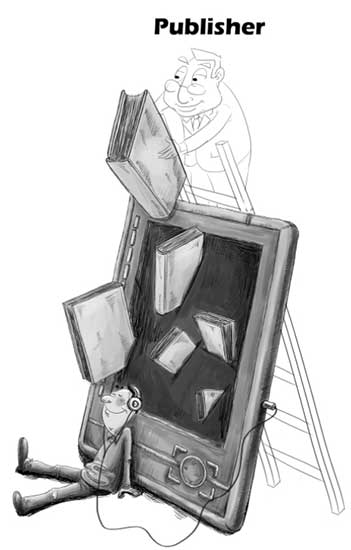RESOURCES
2016-01-28 Source: China Daily

[Photo by Wang Xiaoying/China Daily]
As more Chinese get online, traditional publishers design strategies to retain readers, Yang Yang reports.
With Chinese increasingly taking to the online world-from shopping to reading-book publishers are faced with the challenge of finding and keeping readers of printed materials.
The situation is pushing traditional publishers to turn to the Web to promote their offline books.
Shanghai-based Horizon Media, for example, has lately been using Chinese social media platforms such as Sina Weibo, WeChat and Douban, to advertise the Chinese edition of Stoner, a popular 1965 novel by American author John Williams. The Chinese version of the book, which is also named after its lead character, William Stoner, a college professor, was published by Horizon in xx (month?).
The publisher's social media posts include reader comments, newspaper reviews and excerpts from the Chinese edition.
The release of Hollywood movie The Martian in China this month comes after the publishing of a Chinese edition of the 2011 sci-fi novel by the same title. Written by American author Andy Weir, the book is about a US astronaut's struggle for survival on Mars, and the movie is an adaptation.
Yilin Press, a major translation publishing house in China, published The Martian in Chinese last month, and has since followed up with promotional activities on social media, including posting address links to its physical stores and online retailers such as Amazon, Dangdang, Jingdong, and Tmall.
"We are running our official online store on Tmall to serve our readers directly. What is more, it is a good way for branding. We can directly communicate with readers to see what kind of books they want," says Li Ruihua, the vice-president of Yilin Press.
Dong Yanle, the operations editor for Shanghai-based 99 Readers, gives the example of reader comments on their Tmall store that triggered the publication of prequels of urban fantasy series, The Mortal Instruments. The series, written by American writer Cassandra Clare, has been published in various languages.
"We published the two prequels (in Chinese) in July and September. If we follow the usual publishing procedure, it couldn't have been so fast," Dong says of their decision to heed reader's advice.
In October, 99 Readers held a poll on Sina Weibo to decide on the cover design for a reprinted Chinese edition of Different Seasons to celebrate a decade of the book, which is a collection of Stephen King's novellas.
"We have always adapted the one with a bird on it. This time, we got the authorization for the film poster. So we wanted to know what readers think about the cover," Dong says.
An interesting phenomenon is that those who have read the novel chose the original cover but those who hadn't, found the movie poster more appealing.
"Readers (the majority) found the bird cover fits the novel better. So the new edition will continue with the same cover," she says.
Similar online activities were held by Horizon Media when it was publishing a Chinese edition of the Lord of the Rings series in 2013. The publishing house asked Sina Weibo users to submit their designs for the cover and vote for their favorite one once the final nominations were put out.
Polling online is a good way to publicize a book, says Deng Jing, operations editor of New World Press. When they were working on the autobiography of Italian soccer star Andrea Pirlo, fans were invited to vote for a potential cover design. New World Press then sent their most popular choice to Pirlo before releasing the results online.
"It attracted a lot of attention to the book. Voters tend to buy such books because they were involved in the production," Deng says.
But a good way for traditional publishers to reach accurate reader groups is to combine online and offline promotional activities, Deng adds.
"Usually we host offline activities themed on certain subjects. And we use online platforms to broadcast them."
For example, the book Nature Principle is not for all readers, Deng says. It has a specific target.
"We collaborate with organizations dealing in natural science to host some activities. The readers who are interested in the theme will come to the activities or read our online broadcasts. That's how we get the most accurate groups," Deng says. "But for mass reading, we don't do pre-sale publicity."
"Pure online activities are comparatively ineffective and superficial. The combination of online and offline activities help us to communicate with readers more effectively," she adds.
But no matter how technology developes, "the most important thing is still book quality", Yilin's Li says.